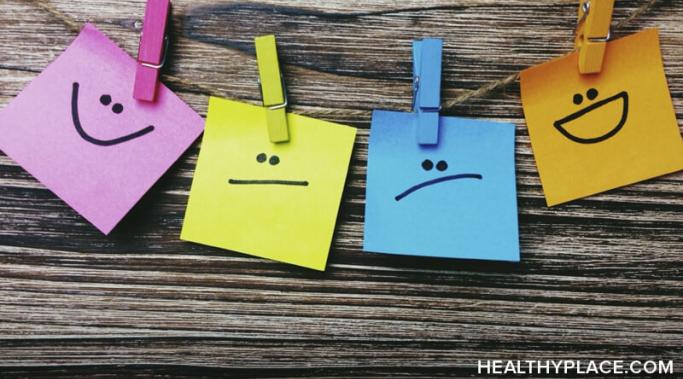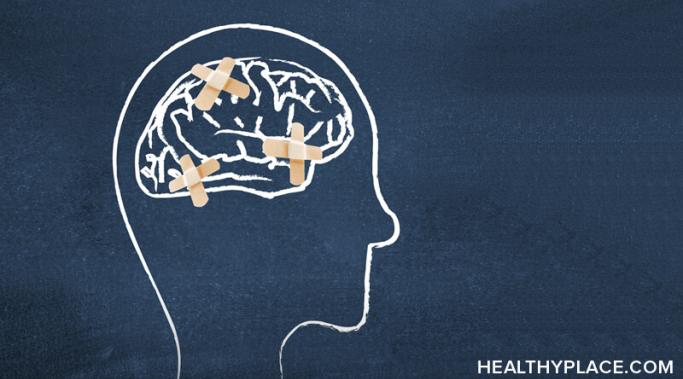If you have been struggling with self-harm and are considering professional help as an option, you may have already come across a type of treatment called dialectical behavior therapy (DBT) for ending self-harm. Though many find success with other common therapies such as cognitive behavioral therapy (CBT), DBT has proved uniquely suited to patients who engage in self-harming behavior.
Self-Injury Treatment
Some coping mechanisms for self-harm act immediately to help stop the urge. In fact, sometimes all we need to get us committed to stop engaging in self-harm is knowing that there are alternative ways of coping with distress and satisfying self-harm compulsions. An important step toward self-harm recovery involves familiarizing ourselves with these alternative coping mechanisms for self-harm, figuring out what works for us, and creating a toolbox (whether that be a mental toolbox or a literal collection of physical objects) of things that we can turn to in our more vulnerable moments.
Our expectations about self-harm recovery sabotage us. You see, when you are in the depths of your self-harm, it is hard to imagine life without it. Even if you want to stop, it feels overwhelming and daunting because you figure that in order to be able to stop, the problems that made you turn to self-harm in the first place would have to be resolved. In other words, the circumstances surrounding your recovery would have to be completely different from the circumstances surrounding your self-harm. But this is a lie we tell ourselves that will sabotage our self-harm recovery.
The root causes of self-harm are as varied as the people who are affected by it. Though self-harm is a problem in and of itself, it is often a response to an underlying stressor of some kind. The reason behind the stress is the cause of self-harm.
You would think that the reasons to recover from self-harm would be obvious. In a way, they are. You would also think that those who currently suffer from self-harm tendencies would recognize these reasons and use them to motivate their recovery. In a way, they do. But that is the thing about mental illness: no one chooses to be sick. Rationale tells us that the drawbacks of self-harm far outweigh the benefits but our sick brains tell us otherwise. The trick is to access and strengthen our rationale — that is, the healthy part of our brains that still exists somewhere inside of us — to do what we know we need to do (Mental Illness Isn't a Choice, But You Still Have Choices). Finding reasons to recover from self-harm is part of the process.
I have been in self-harm recovery for the past 10 years, but I didn't always know how to recognize self-harm triggers. When I was a teenager, I went to therapy to help me get over my self-harm addiction. One day, my therapist asked me “Why do you think you self-harm?” Until that moment I never really thought about the reasons behind why I self-harm. I always just thought it was the way I coped with different situations in my life. We started to brainstorm some situations, people, and events that trigger my self-harm urges. It’s beneficial to recognize self-harm triggers so you can find healthier coping skills to handle your stress.
Starting new psychiatric medication can affect self-injurious behavior. Starting when I was in my early teens, I was given many different combinations of medications to take for my mental illness. The medication side effects ranged from hives to hallucinations. The worst part about taking a different pill every couple of months was the uncertainty of how it was going to affect my mood. Most of the medications simply failed to make me better, but a few had severe adverse effects on my mood and overall health that were impossible to ignore. As a self-harmer, handling the stress and mood changes that comes along with new medications is vital to recovery. In short, you need to know the effects that new psychiatric medication may have on your self-harming.
When I was working at a residence for youth with mental illness, every day was a struggle. Not only were the youth struggling to stop their negative behaviors, but I, too, was learning to push away my past and work on helping the future of others by using past experience.
We would often focus on coping skills that were necessary to move past these urges. Yes, I know I talk about coping skills like a broken record, but once you know the positive ways to redirect yourself, it becomes a little easier to sway away from the sharp objects around you. We always hear about the common coping skills: listening to music, going for a walk or writing in a journal.
However, one coping skill that has always stuck out in my mind is self-talk.
When you feel the need to self-injure, it takes a lot of self-control to push away the emotions and temptations connected to those urges. When you’re angry or upset and you turn to cutting or burning, your mind focuses on that mark and it is difficult to see anything else clearly.
Sometimes, all you need to prevent self-harm urges is a few minutes with a pet.









